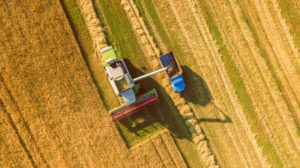Don’t Let Your Tractor Turn into a Killer
Don’t Let Your Tractor Turn into a Killer
Tractor accidents at work are the most common cause of agricultural worker fatalities in the U.S. Employers are responsible for meeting the minimum standard of safety for their field workers, yet many farms still do not have tractors equipped with rollover protective structures (ROPS). Neglecting to take this basic safety precaution to protect your workers can expose you to liability in the event that your tractor causes someone to be hurt at work in San Jose.
Understanding the Importance of ROPS
Since 1986, almost all new agricultural tractors sold in the U.S. come equipped with ROPS and seatbelts. Unfortunately, a significant number of older tractors are still in use, and owners have proven reluctant to retrofit them with ROPS and seatbelts. The common reasons given for this reluctance include the perception that ROPS is unnecessary with a skilled operator, and the inconvenience and money required to retrofit old tractors. However, according to the Great Plains Center for Agricultural Health, one in every 10 operators will overturn a tractor at least once during their lifetime, and 80% of all tractor overturns occur when an experienced operator is at the wheel. Tractor rollover accidents at work cause one in seven affected individuals to suffer permanent disability. They’re also costly to the farm owners. Within five years of a tractor-related fatality, seven out of every 10 farms will go out of business.
Checking OSHA Regulations
Complying with OSHA regulations regarding the prevention of workplace injuries protects the health and lives of operators, and it safeguards employers from liability. OSHA requires agricultural employers to provide ROPS that meet specific safety tests, including static, dynamic, and field tests. Seatbelts must also meet certain standards. OSHA requires that employers ensure that each operator tightens the seatbelt appropriately. If the tractor has a suspended seat, the belt must be attached to the moveable part of the seat. OSHA has many other requirements. A lawyer can help owners ensure that they are in full compliance with all regulations that apply to them.
Training Tractor Operators
The cage frame or roll bar of ROPS equipment can save lives, but ROPS isn’t a substitute for proper operator training. Operators should know how to minimize the risk of a rollover by taking precautions, such as never changing gears on a slope, slowing down before turning, and navigating around ditches instead of through them.

